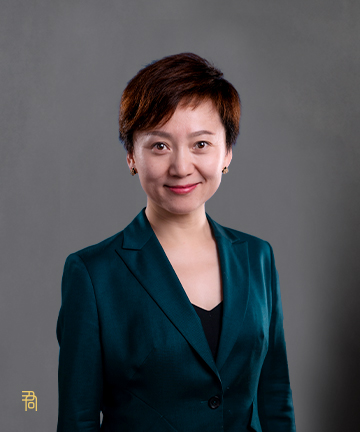CSRC Reshapes the Fund Distribution Regulatory Landscape by Issuing New Consultation Papers
2019.03.22 XIE, Qing (Natasha)、WU, Man、WANG, Yufang
After a six year hiatus in which the regulatory landscape remained relatively unchanged, the China Securities Regulatory Commission (CSRC) has recently proposed substantial amendments to various fund distribution regulations. On February 22, 2019, the CSRC released three inter-related items, the Measures for Supervision and Administration of Fund Distributors of Publicly-Raised Securities Investment Funds (Consultation Paper) (“Administrative Measures”), the Provisions on Issues Concerning the Implementation of the Measures for the Supervision and Administration of Fund Distributors of Publicly-Raised Securities Investment Funds (Consultation Paper) (the “Implementing Provisions”), and the Interim Measures for the Administration of Promotional Materials of Publicly-Raised Securities Investment Funds (Consultation Paper) (the “Interim Measures”). These three items, (collectively the “Consultation Papers”), have the aim of reshaping the regulatory landscape for fund distribution and providing clarification on some important aspects of fund distribution activities. Key elements of the Consultation Papers are summarized below.
I. Definitions and Classifications
1.1 Fund
Paragraph (iv) of Article 66 of the Administrative Measures stipulates that unless explicitly described as a “private fund”, all “funds” referred to thereof shall be taken to mean an abbreviation of a “publicly-raised securities investment fund.” The Administrative Measures include a separate chapter specifically focused on the regulation of private funds. However, it is worth noting that, unlike earlier CSRC rules or regulations that define private funds as those issued by private fund managers, the private funds defined under the Administrative Measures include privately-raised asset management plans established by any securities and futures business, in addition to private funds issued by private fund managers.
1.2 Fund Distribution Activity
The Consultation Papers also provide a definition of what might constitute a “fund distribution” activity, such as opening a fund trading account for a fund investor, promoting a fund, dealing with offering, subscription and redemption of fund units, and the acceptance of an enquiry concerning account information. Two of the items listed in the Consultation Papers - “account opening” and “account information enquiry” - were not in the previous definition of fund distribution. In addition to fund distribution activities themselves, the Consultation Papers also provide clarification of various activities related to fund distribution, namely fund distribution payment, supervision on fund distribution settlement capitals, fund unit registration and information and technology services, and collectively define the institutions that engage in the above activities as “other fund servicing institutions”, which, together with fund managers and fund distributors, all fall within the remit of the Consultation Papers.
1.3 Independent Fund Distributor
Fund managers who sell their own products shall be subject to the Consultation Papers’ regulations. The Consultation Papers define third-party institutions that distribute funds for fund managers into two main categories: (i) financial institution fund distributors (ii) independent fund distributors. Financial institutions such as commercial banks, securities companies, futures companies and insurance companies shall only engage in fund distribution activities after obtaining the requisite qualification for fund distribution and a License for Operating Securities and Futures Business. Institutions other than those aforementioned may also apply for fund distribution qualification. Although the financial institutions mentioned in the Administrative Measures do not include “securities investment advisory institutions”, on the basis of Article 6 of the Implementing Provisions we understand that the CSRC shall, in fact, categorize securities investment advisory institutions, insurance brokerage companies and insurance agencies that engage in fund distribution activity as an “independent fund distributors.”
1.4 Fund Promotion
The Consultation Papers for the first time provides a definition of fund promotion. Fund promotion is defined as an act where a fund manager, fund distributor, or any of their practitioners, for the purpose of concluding a transaction, introduces a fund product to an investor. From the above definition, it can be inferred that “for the purpose of concluding transactions” and “introducing fund products to investors” constitute two major elements of fund promotion. The clear definition of fund promotion as proposed by the CSRC provides meaningful guidance for foreign fund institutions to take into account as they engage in any onshore marketing activities.
II. Registration Requirements and Procedures
Compared to the existing regulations, the Consultation Papers have increased the threshold of registration requirements for fund distributors. Some of the requirements are that the applicant shall:
• not have been subject to any administrative regulatory measures for a business that is closely related to fund distribution in the last 12 months;
• not currently be under investigation by any regulatory authorities or be within the period of rectification ordered by regulatory authorities due to violation of laws or regulations;
• have at least 30 personnel who qualify as fund practitioners.
In addition, the minimum registered capital requirement for independent fund distributors increases from RMB 20 million to RMB 50 million. For a shareholder of an independent fund distributor that holds more than 5%, the shareholder’s registered capital, capital contribution or net asset value shall be no less than RMB 100 million.
The Consultation Papers set forth, for the first time, various requirements for a foreign shareholder of an independent fund distributor, namely that (i) it shall be a financial institution duly incorporated and legally existing in accordance with the laws of the country or region of its domicile, with the financial asset management or advisory experience, and be in strong financial health; (ii) the country or region where it is domiciled has well-established laws and regulatory systems in respect of securities and fund management, and the securities regulatory authorities of the country or region of its domicile shall have signed a memorandum of understanding on cooperation regarding the securities regulation with the CSRC or other institution as recognized by the CSRC, and have maintained an effective regulatory cooperation relationship with the CSRC; and (iii) it shall satisfy other conditions as stipulated by the CSRC.
The Consultation Papers also set out the requirements for the controlling shareholders and de facto controllers of independent fund distributors. For example, such entities shall not engage in other businesses which have or potentially may have conflicts of interest with the fund distribution business, and shall be in strong financial health. The Consultation Papers also prescribe the principle of “Yi Can Yi Kong”, (literally, “One Minority, One Control) meaning that an institution or the institutions controlled by the same de facto controller shall not invest in more than two independent fund distributors, and shall only control up to one of the two independent fund distributors in which it/they invest in.
Providing an indication of the CSRC’s cautious approach to the registration of independent fund distributors, the Consultation Papers include a change in the location of the registration authorities for fund distributors, from the CSRC’s local offices to the central CSRC.
III. Compliance Risk Control and Sale of Products
3.1 Compliance Risk Control
The Consultation Papers include some additional requirements on compliance risk control and management, for example requiring a fund distributor to ensure that any compliance and risk control personnel should perform their duties in an independent and effective way. Such personnel shall not concurrently hold both operational and management positions. Upon discovery that the company has any material risk or that there is any violation of the law or regulation, the compliance and risk control personnel shall in a timely manner inform the person in charge of fund distribution, provide advice and recommend the necessary rectifications, and shall at the same time encourage the company to report to the local office of the CSRC in a timely manner, or if the company fails to do so, themselves make a report directly to the local office of the CSRC.
3.2 Distribution of Private Funds
Generally speaking, the Consultation Papers reflect the tendency towards a tightening of regulation. For example, they restrict an independent fund distributor from distributing private funds issued by private fund managers, add some mandatory clauses to the distribution agreement, and restrict the distribution method for non-standardized asset management plans.
Of particular note, Article 15 Paragraph (ii) of the Administrative Measures stipulates that an independent fund distributor shall neither engage in the distribution of any asset management products other than mutual funds or private asset management plans established by securities and futures business institutions, nor shall it carry on any other activities without the permission or recognition of the CSRC.
A literal interpretation of the above provision would mean that an independent fund distributor should not distribute any private funds issued by a private fund manager if such distributor fails to meet the additional requirements and does not obtain the relevant recognition of the CSRC. However, there is a problem in that the CSRC has not yet publicized any such additional requirements and recognition procedures. Since the distribution of private funds issued by private fund managers in practice largely relies upon independent fund distributors’ distribution channels, we believe the above new provision may have a significant impact upon the existing business models used in the distribution of private funds. One unresolved issue that has drawn extensive attention from the industry is whether independent fund distributors will be able to retain their private fund distribution business, and there will be continuing uncertainty until the CSRC issues a clarification on the relevant requirements and procedures. In order to assist in the interpretation of the new regulations, we would suggest the CSRC provide some further explanation of the circumstances under which independent fund distributors may lawfully engage in the distribution of private funds as early as possible.
3.3 Mandatory Clauses for Distribution Agreements
The distribution agreement is required to include certain mandatory clauses relating to matters including the division of responsibilities for providing ongoing service to fund investors and anti-money laundering. Compared to the existing regulations, newly added clauses are required regarding the division of obligations and responsibilities between the fund distributor and fund manager for information disclosure, due diligence investigations on anti-terrorist financing, and tax information relating to any non-residential financial accounts. There is also a new requirement to include in the distribution agreement details of the service arrangement that will apply upon the termination of businesses of the fund distributor. In addition, for the first time, the Consultation Papers specifies the requirements for providing a continuous information service to customers.
3.4 Distribution of Non-standardized Asset Management Plans
In terms of the distribution of non-standardized asset management plans (AMPs), the Consultation Papers require independent fund distributors to distribute the privately-raised AMPs investing in non-standardized assets only by referring the investors to the managers. Independent fund distributors shall conduct a due diligence investigation on the managers and fully disclose the outcomes to the investors. The managers will be required to directly perform the product information confirmation procedure, sign the asset management contracts with qualified investors, and receive the investors’ capital funds.
3.5 Fund Portfolio Sale Services
A highlight of the Consultation Papers is that fund managers and fund distributors will be allowed to provide fund portfolio sale services to fund investors. We expect the CSRC to release the detailed rules on fund portfolio sales service shortly.
IV. Outsourcing Related to Fund Distribution
The Consultation Papers require that any institution that accepts entrustment from a fund manager or fund distributor shall provide services relating to fund distribution (i.e., they shall be a fund distribution servicing institution), and shall meet the qualification requirements prescribed by the CSRC. Such an institution shall be filed with the local offices of the CSRC where their registered office is domiciled before undertaking the relevant business.
Fund managers and fund distributors may also entrust other fund distributors to handle activities, such as mid- or back-office processing of the payments of fund distribution, or data exchange concerning fund distribution, etc. The detailed rules relating to these items are yet to be stipulated by the CSRC.
For a fund distribution servicing institution that engages in information technology services, there is a requirement that the fund distribution activities of fund managers and fund distributors should be solely managed through their own internal information management platforms, rather than through an external platform provided by an information technology servicing institution. An information technology servicing institution is explicitly prohibited from collecting, transmitting, or retaining any information concerning fund transactions of any investor.











